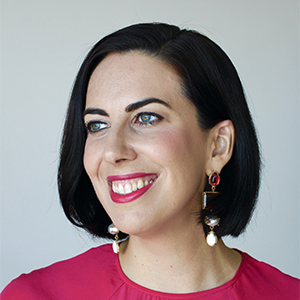James Jiang
Blurb praise and hot takes: Criticism in an age of publicity
Because my background is academic (and in English studies), certain disciplinary conventions still find their way into my review writing. In fact, it’s hard for me to think of my reviewing as reviewing rather than as criticism in that more university-bound sense: that is, as having something to do with the art of interpretation. It may help that most of the books I review – works of contemporary poetry and literary criticism – are considered ‘hard’ or at least esoteric, and thus in need of a little explaining. The persona I hear most recognisably in my journalistic prose is that of my former lecturer-self (a good lecture, like a good review, strikes the right balance between granular analysis and makeshift generalisation). I suppose I still think of the primary goal of my reviewing as teaching something about how to read.
... (read more)James Jiang reviews 'A Thousand Crimson Blooms' by Eileen Chong and 'Turbulence' by Thuy On
The biographical note to A Thousand Crimson Blooms observes that Eileen Chong’s first book, Burning Rice (2012), is ‘the first single-author collection of poetry by an Asian-Australian to be studied as part of the NSW HSC English syllabus’. Having run many writing workshops for students and adults over the years, Chong takes her pedagogy as seriously as her poetry. It’s no surprise, then, that A Thousand Crimson Blooms, Chong’s fifth collection, is replete with scenes of instruction. In ‘Teacher’, the poet corrects her mother’s pronunciation (‘I say TEAcher, then, I say teacher. / … I feel like an arsehole’) only to stand corrected by memories of her mother’s gentler tutelage. The collection’s dedicatee, Chong’s grandmother, metes out corporal punishment in ‘Hunger’, but has her own body disciplined in ‘Float’. The poet learns the meaning of ‘thole’ (Scottish for ‘to endure / what is barely bearable’) and after surgery discloses the origins of her nurse’s name. If there is pathos evoked by these anecdotes, much of it has to do with the way knowledge – how to care for the body, where to look for the roots of words – helps the poet overcome the inertia occasioned by violence, whether racial, sexual, or medical.
... (read more)James Jiang reviews 'Dislocations: The selected innovative poems of Paul Muldoon' edited by John Kinsella
Dislocations is a product of the Irish diaspora. Its editor is a Western Australian who claims his Irish heritage from Carlow and Wicklow; its subject was brought up on the border between counties Armagh and Tyrone in Northern Ireland, and emigrated to the United States in 1987. There is, then, a biographical precedent for John Kinsella’s sharp characterisation of Paul Muldoon’s work as ‘a liminal poetry that lives both sides of any given border … in an ongoing state of visitation with its roots in linguistic and cultural reassurance’.
... (read more)Mount Parnassus remains a proscribed destination for the moment, but Aidan Coleman’s Mount Sumptuous (Wakefield Press, $22.95 pb, 56 pp) provides an attractive local alternative. Following on from the poems of love and recovery in Asymmetry (2012), this collection marks the poet’s reawakened appetite for the sublimities and subterfuges of suburban Australia, from cricket pitches ‘lit like billiard tables’ and Blue Light Discos to the flammable wares of Best & Less and the implacable red brick of ‘all-meat / towns’. As these poems and their pseudo-pedagogical endnotes show, Coleman is a keen philologist of the language of commerce. The title’s ‘sumptuous’ (from the Latin sumptus for ‘expense’) keys us in to the vital ambivalence of a poetry, which on the one hand honours the rituals of everyday consumption (‘lounging / book in hand, Tim Tams / … tea a given’), and on the other speaks to the exploitative logic of consumer capitalism (‘Take the juiceless fruits / of day labour and a white / goods salesman’s leaden chicanery’).
... (read more)James Jiang reviews 'The Espionage Act: New poems' by Jennifer Maiden
W.H. Auden once rebuked Percy Shelley for characterising poets as ‘the unacknowledged legislators of the world’. To think this way is to confuse hard with soft power, coercion with persuasion. Poetry, as Auden famously wrote, ‘makes nothing happen’; he instead bestowed Shelley’s epithet upon ‘the secret police’. But in an age of surveillance and information warfare that has militarised the channels of everyday communication, the line between hard and soft becomes more difficult to draw. The very notion of a random or innocent signal seems laughably naïve as we are inundated by new suspicions and suspicions of news. But the state of mind in which there is always more meaning to be had is one that poetry invites us to inhabit. For Shelley, poems were ‘hieroglyphs’ and the poetic imagination an ‘imperial faculty, whose throne is curtained within the invisible nature of man’. Is the poet an agent, then, of this secretive control? Perhaps Shelley was on Auden’s side all along.
... (read more)Heide is the final instalment of an epic trilogy that began with 24 Hours (1996) and was followed by Fitzroy: A biography (2015). It also marks a departure for π.O. In this third volume (the only one in the trilogy not to be self-published), the unofficial poet laureate of Fitzroy turns his attention away from the migrant and working-class characters of his beloved suburb toward the names that line the bookshelves and gallery walls of the nation’s most august institutions.
... (read more)






